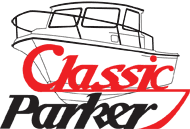Hi all, new to the forum. I have a general question about trailering Parker boats. Currently, I have a 2006 4x4 Tacoma doublecab long box truck with a V6. The tuck is wired for trailer brakes. Towing is rated at 6500lbs max.
I've been in love with the 2120 or the 2320 Sport Cabins but I'm concerned that my truck won't handle the weight.
Anybody know the loaded weight with boat, trailer, motor ect for the 2120 or 2320? I've looked at the Parker site but they just give boat weight. Any info would be very helpful. Thanks in advance!
I've been in love with the 2120 or the 2320 Sport Cabins but I'm concerned that my truck won't handle the weight.
Anybody know the loaded weight with boat, trailer, motor ect for the 2120 or 2320? I've looked at the Parker site but they just give boat weight. Any info would be very helpful. Thanks in advance!






